Can Dogs Eat Mac and Cheese?
Ever wondered if it’s cool to slide your pooch a little macaroni and cheese under the dinner table? We get it, those puppy dog eyes make it mighty hard to resist! But let’s dish out the truth about this homey comfort food and our four-legged buddies.
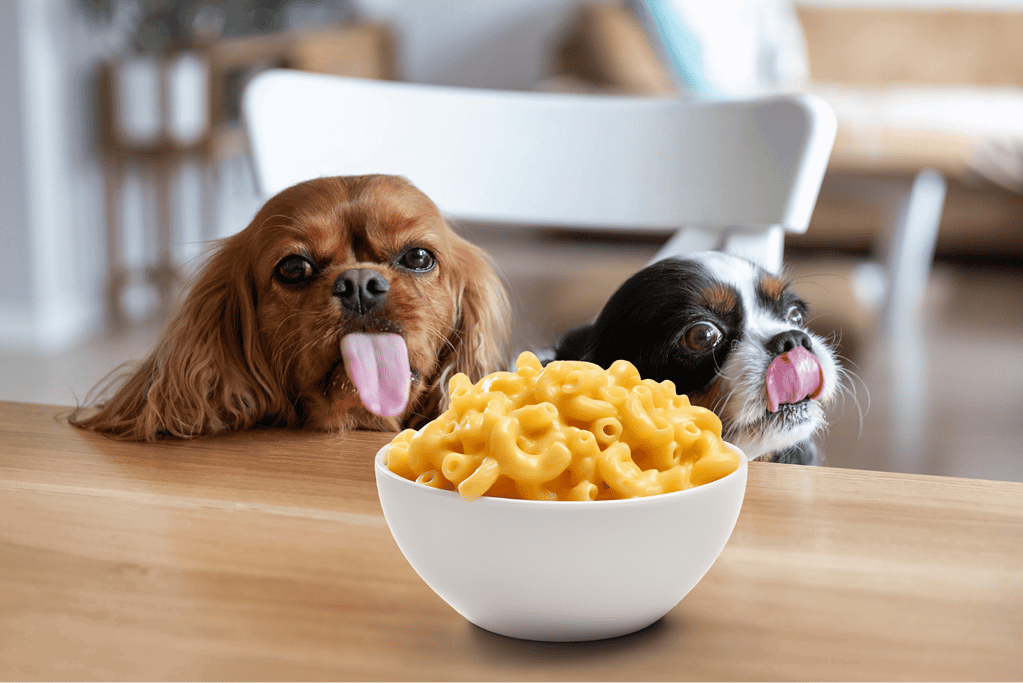
Mac and cheese, it’s not just a bowl of creamy, dreamy deliciousness. Nope, it’s crammed full of carbohydrates, protein, and some other really important stuff, too. But before you go ahead and split your portion with your fur pal, there’s a catch.
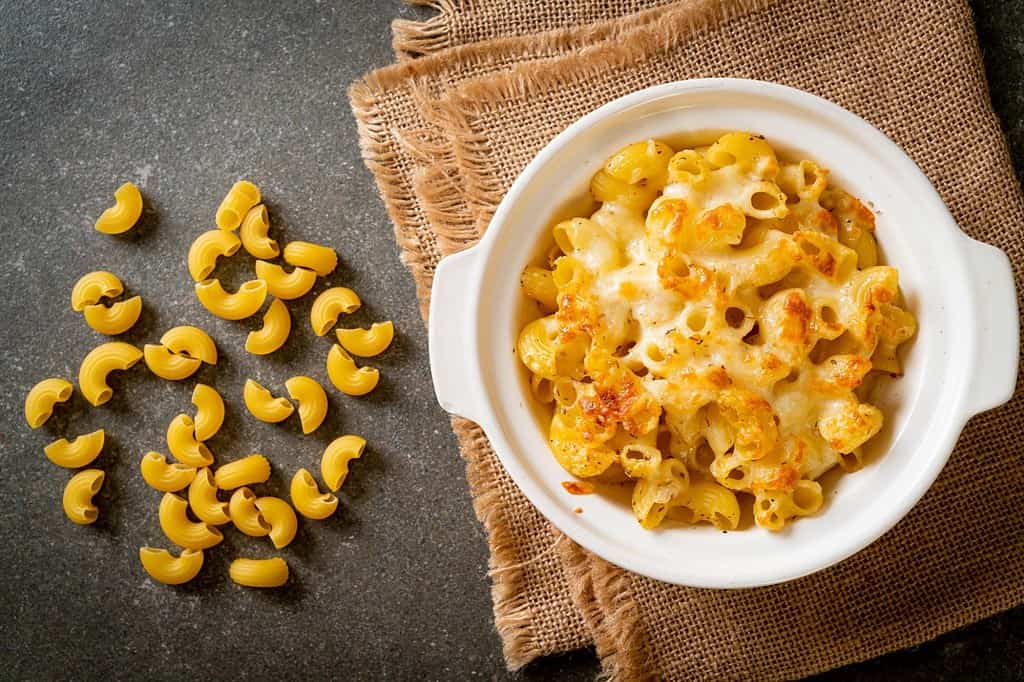
This tasty stuff is bursting with calories and less-than-ideal ingredients for our pooches. Dairy, gluten, and even some sneaky seasonings like onions and garlic that aren’t cool for canines can all be found lurking around in there.
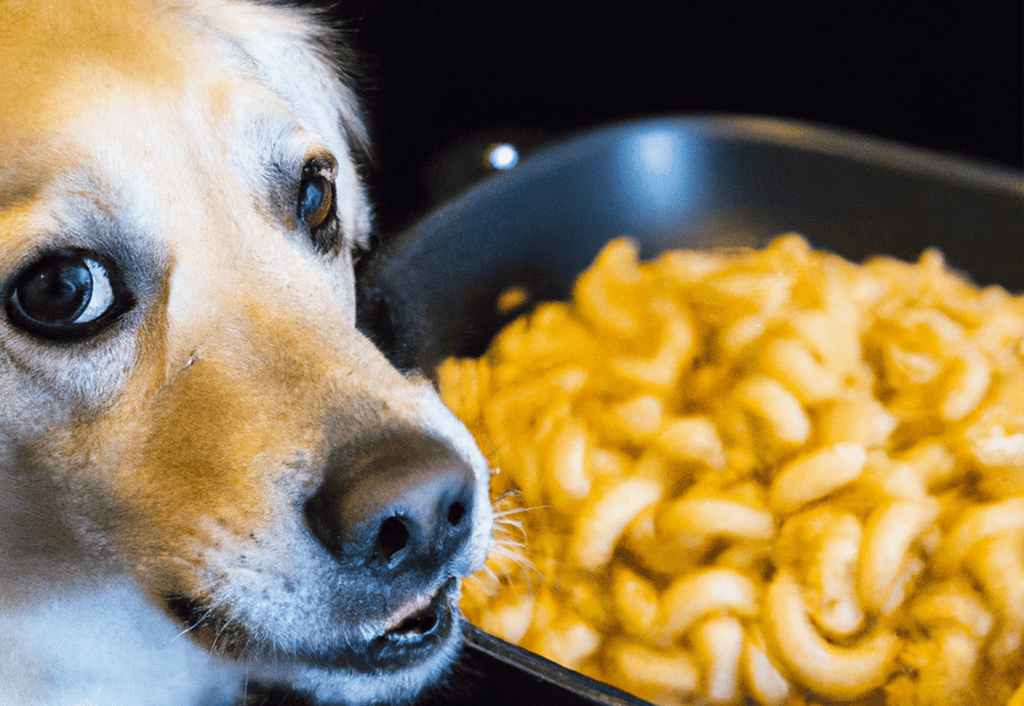
Plus, did you know that some of our fur buddies can actually be lactose intolerant or have a rough time digesting gluten? No, you’re not alone, doggy allergies are a real thing! So that seemingly innocent scoop of mac ‘n’ cheese could turn into a roll of the digestive dice.
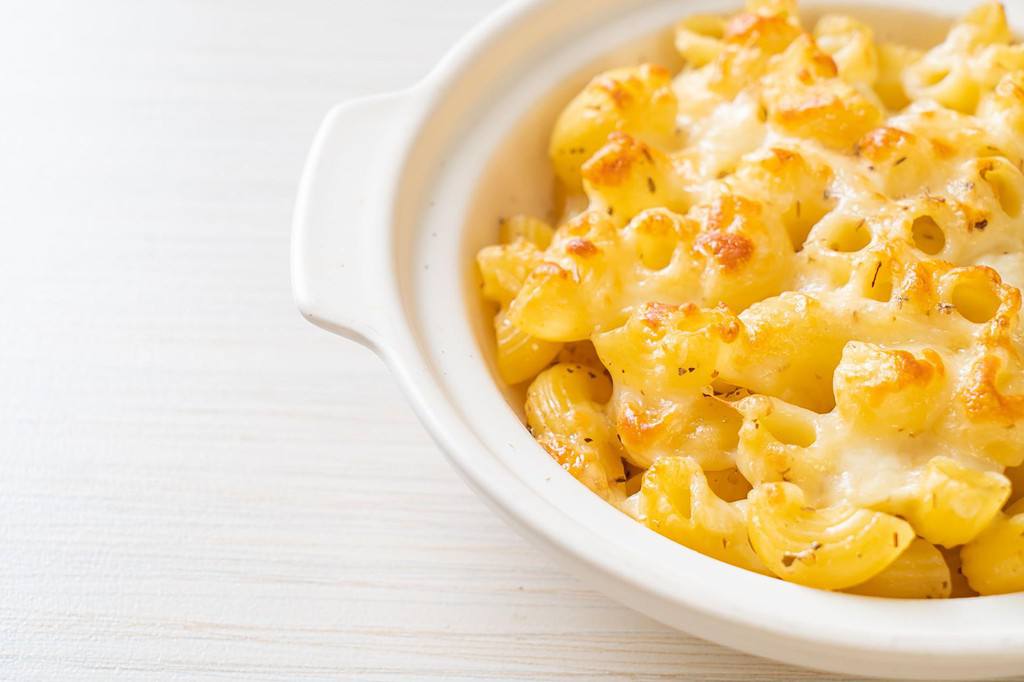
Your fur buddy’s eating habits aren’t the best place for a game of chance. Instead, why not explore some healthier alternatives? Trust us, there’re tons of tasty options out there, packed full of all the essential nutrients your pooch needs. No doggy diets needed or tummy troubles in sight! And the best part? No potential health risks. Phew!
The Composition of Mac and Cheese
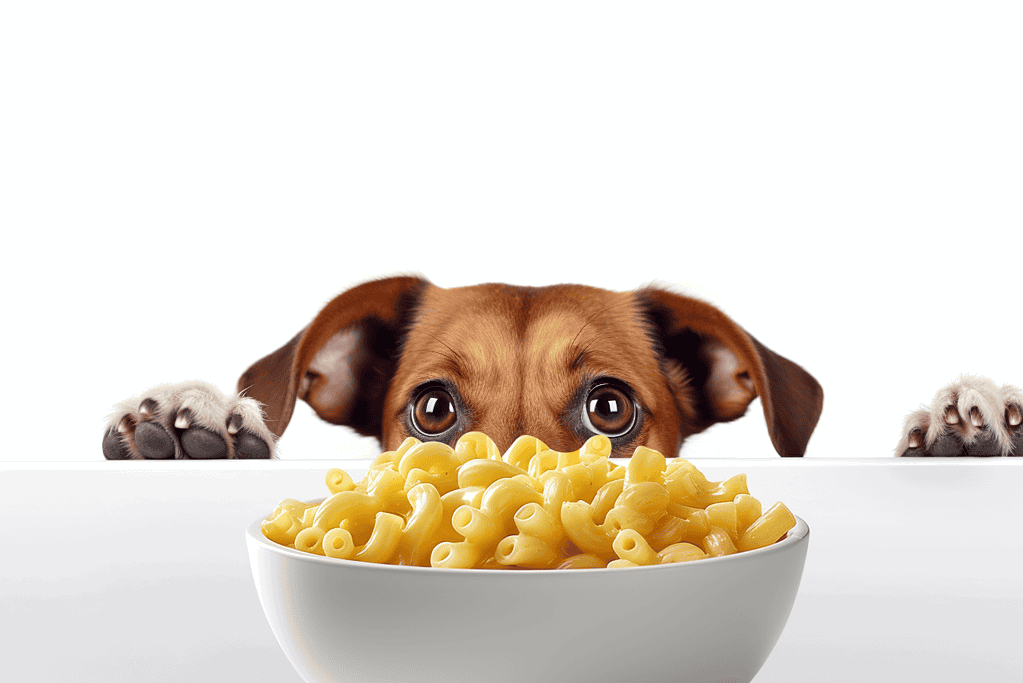
We’ve all been there, tucked up on the couch with a bowlful of steamy mac and cheese, right? We’re talking perfectly cooked pasta spirals, bathed in a creamy cheese lagoon. Guilty indulgence? Check. But have you ever wondered about all the bits and bobs that go into making your beloved comfort dish?
Nutritional Value of Mac and Cheese
Macaroni and cheese is a popular dish made using two main ingredients: macaroni (a pasta made from wheat) and cheese (a dairy product). This comfort food contains carbohydrates, protein, and fats that provide energy to both humans and animals. For humans, mac and cheese can be an occasional indulgence that provides a source of calcium and vitamin D from the dairy products used.
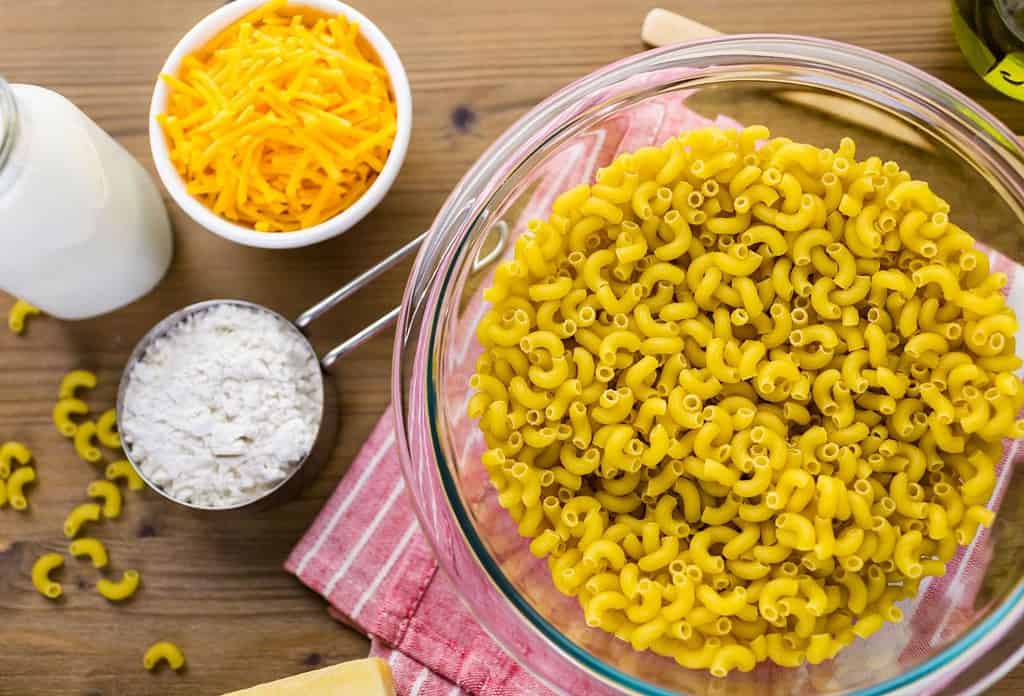
While these mouthwatering scoops might be a fiesta for us, the same can’t be said for our fur pals. Unlike us, the dietary needs of our dogs are vastly different. Their diet should mainly consist of high-quality protein sources and essential nutrients from various animal-based ingredients. Although our beloved Mac ‘n’ Cheese does pack a punch with all the carbs and proteins, it falls short on the spectrum of essential nutrients that ensure optimal health for our paw pals.
Unhealthy Additives in Processed Mac and Cheese
We live in the age of convenience, and our pantry shelves are often filled with boxed versions of this cheesy delicacy. But this quick ‘n easy solution might not be the healthiest option for us or our pets because these boxed versions have unhealthy additives like artificial flavors, colorings, and preservatives. So, what really lurks within these boxes of convenience?
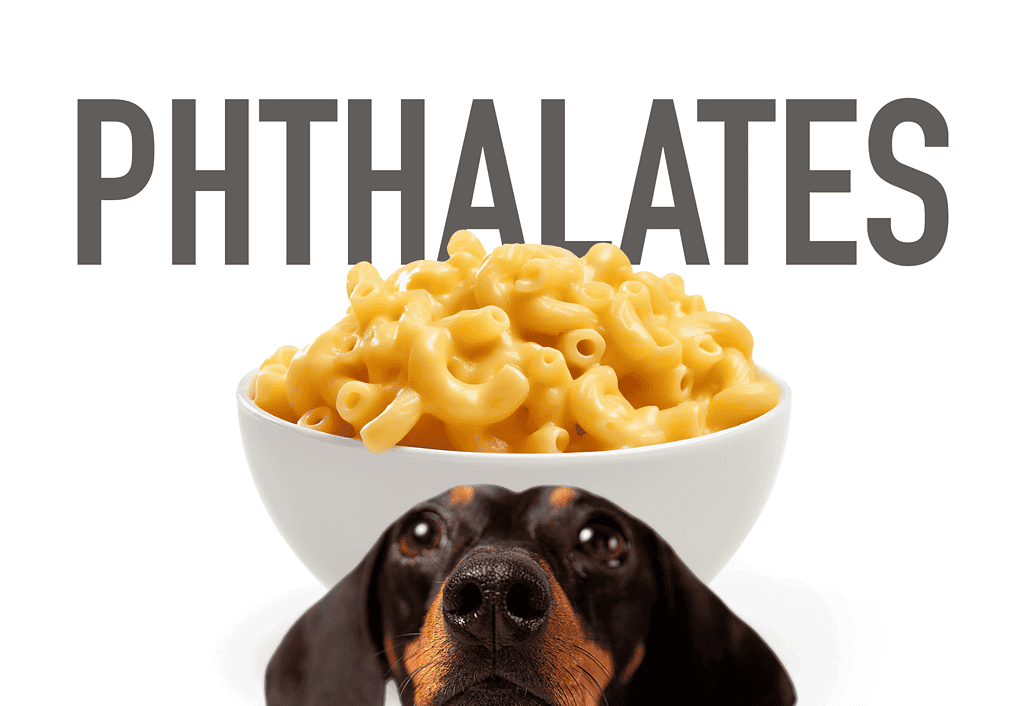
Firstly, there are Phthalates. These chemicals are used to improve the texture of processed foods. But mind you, it’s not all rosy. Phthalates have been linked to various health hazards in humans and can be pretty dicey for our dogs. Canines may struggle to break these substances down, exposing them to health issues.
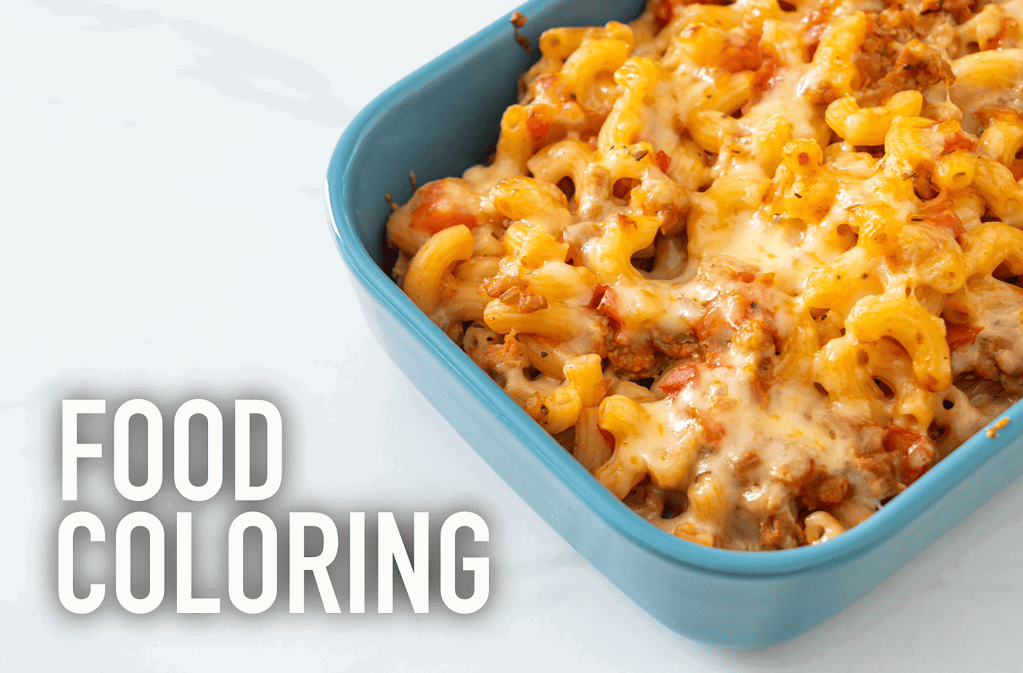
Then we have food coloring thrown in to enhance the appearance factor, but these colorings may pose a risk to dogs due to potential allergic reactions or other adverse side effects.
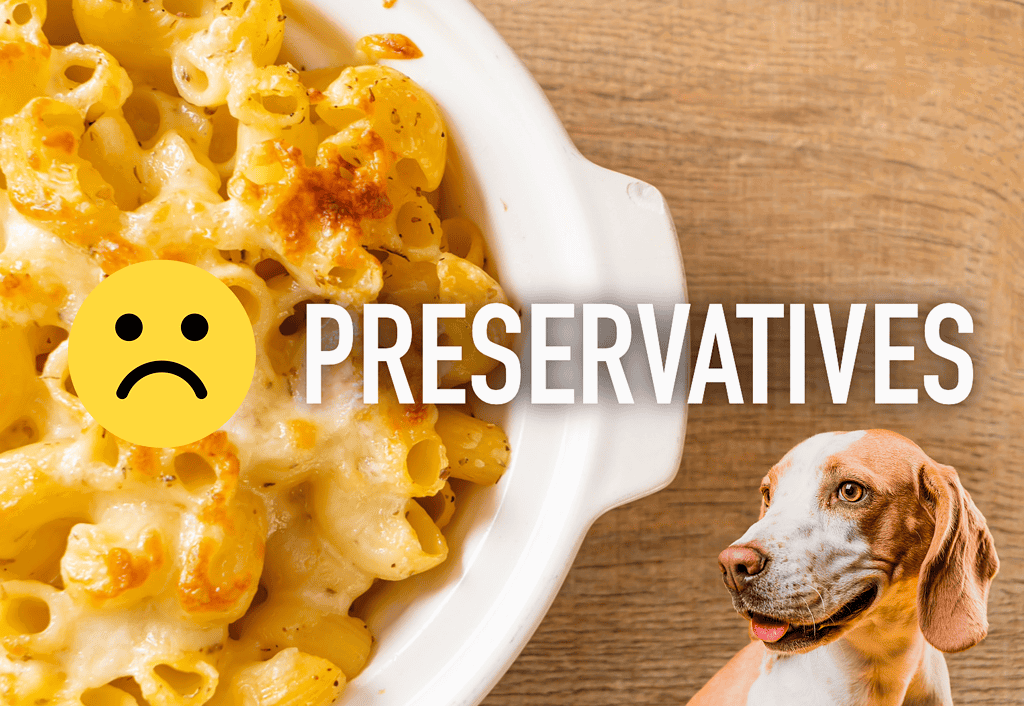
Lastly, preservatives. Their role is to ensure our comfy food has a longer shelf life. But they may play fast and loose with our pet’s tummy, causing digestive complications and other health problems if eaten in large quantities.
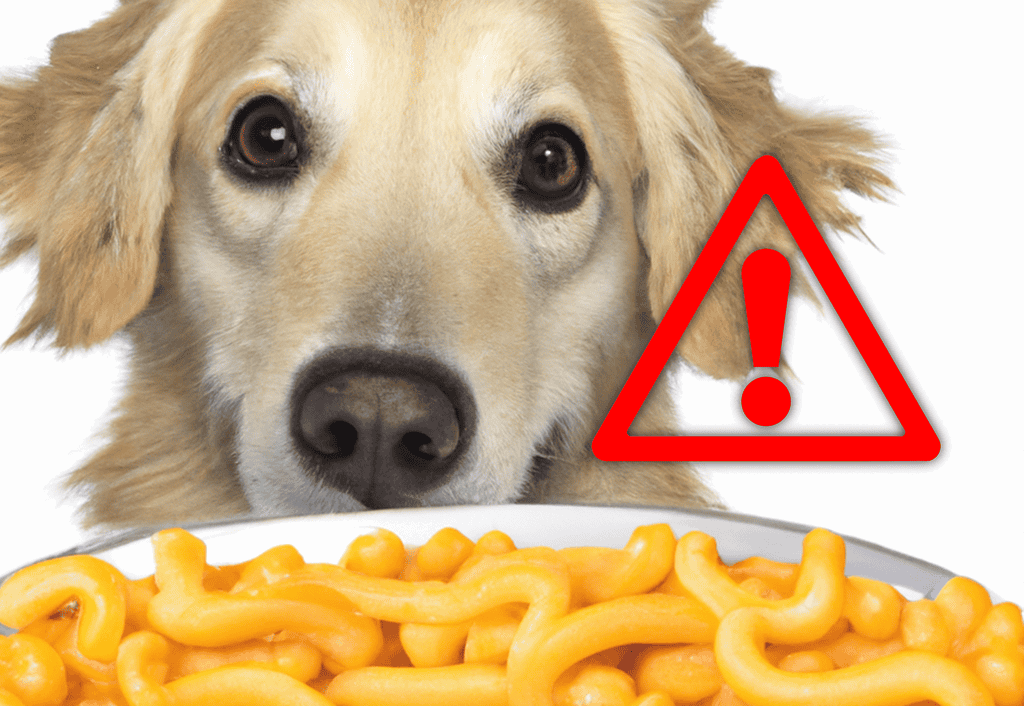
Although consumption of processed mac and cheese might not be immediately life-threatening to dogs, it is best to avoid feeding them this dish due to the potential adverse effects of both its nutritional value and the unhealthy additives typically found in processed versions.
Potential Health Risks for Dogs
So, you have a steaming bowl of mac ‘n cheese, and your fur buddy is giving you that “Puppy eyes that could melt hearts” look. Tempting to sneak them a bite, right? Wait up! As heavenly as mac ‘n cheese is to us, it’s a different story for our furry friends.

It’s time to get real about the danger lurking in your pasta bowl.
Lactose Intolerance

One risk is lactose intolerance, as some dogs are unable to digest lactose properly. This can result in gastrointestinal issues such as diarrhea, vomiting, and abdominal pain. Owners should remember that not all dogs are lactose intolerant, but it’s important to monitor their dog’s reactions when introducing dairy products.
Harmful Ingredients
It’s not just the homemade variety, store-bought mac ‘n cheese often sneaks in additives to amp up the appeal. But these artificial flavors, colors, and chemical compounds spell trouble for our fur friends. These ingredients can be harmful to dogs and may contribute to obesity, cancer, or other serious health concerns.
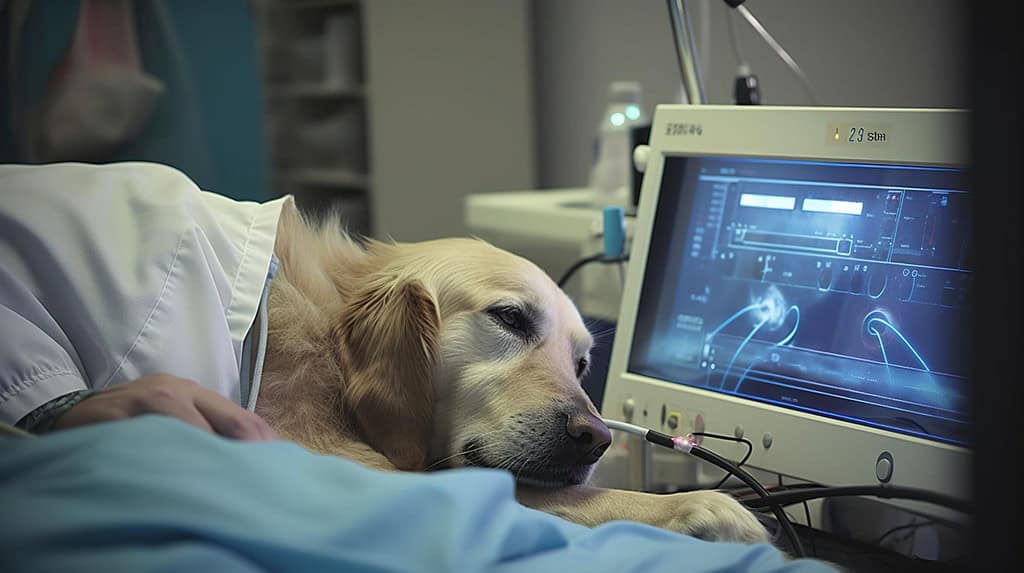
Another concern is the presence of onions and garlic, which are toxic to dogs and can cause gastrointestinal irritation and illness, even in small amounts. These ingredients are often found in mac and cheese, making it unfit for canine consumption.
Salt Toxicity
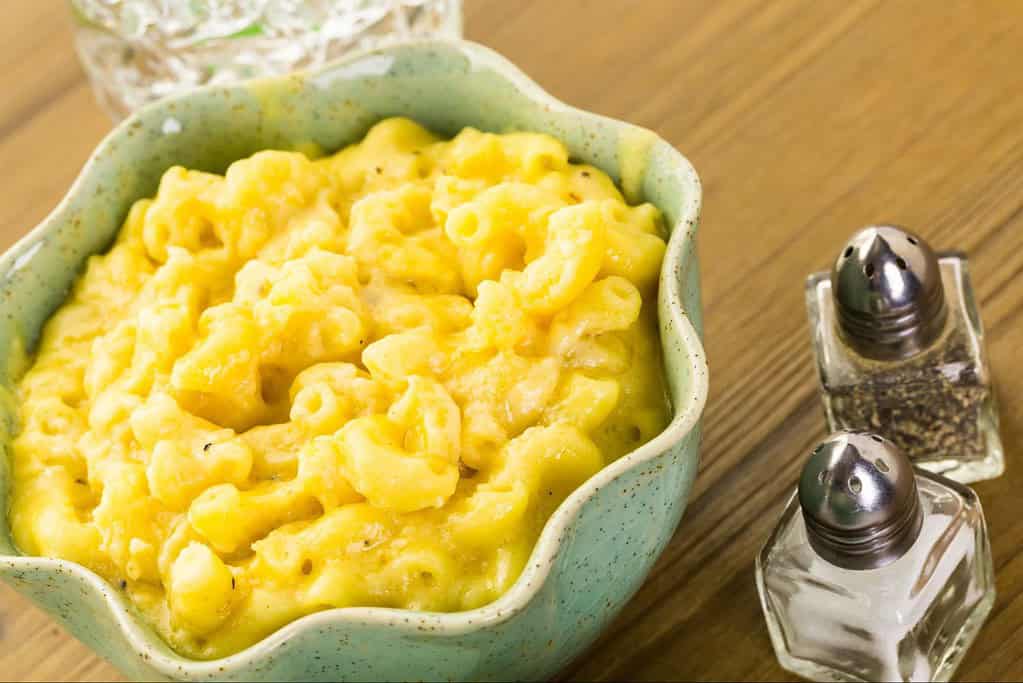
Salt, that little sprinkle that makes everything pop, holds more hazard than hope for dogs. Dogs + sodium = a big no. Consuming high amounts of sodium can cause salt toxicity in dogs, leading to vomiting and diarrhea, and may even be life-threatening in severe cases.
Allergies
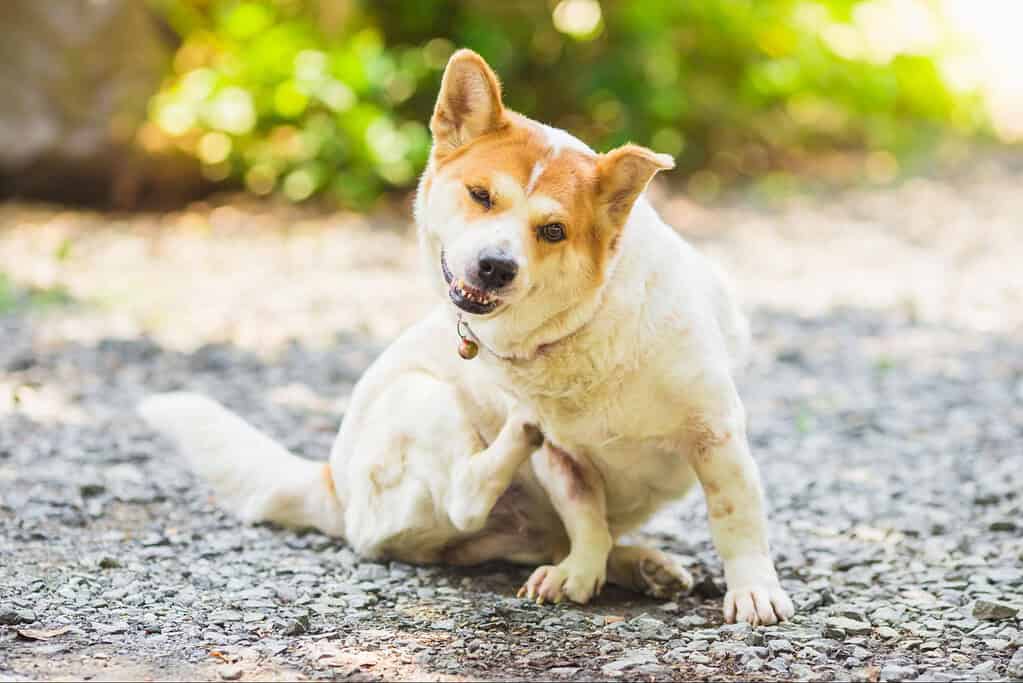
Dogs with gluten allergies or sensitivities can also be at risk when fed mac and cheese made with wheat-based pasta. Gluten allergy and intolerance symptoms in dogs can include gastrointestinal issues, skin irritations, and even behavioral changes.
Obesity and Weight Gain
Mac and cheese ain’t no low-calorie fiesta. And regularly feasting on this carb-loaded dish could gift your fur pal a bulging belly. The high-fat content in mac and cheese can pose various problems for dogs. A diet high in fat can increase the risk of developing health issues such as pancreatitis, a dangerous and painful inflammation of the pancreas, and an increased risk for chronic conditions, including diabetes and heart disease.
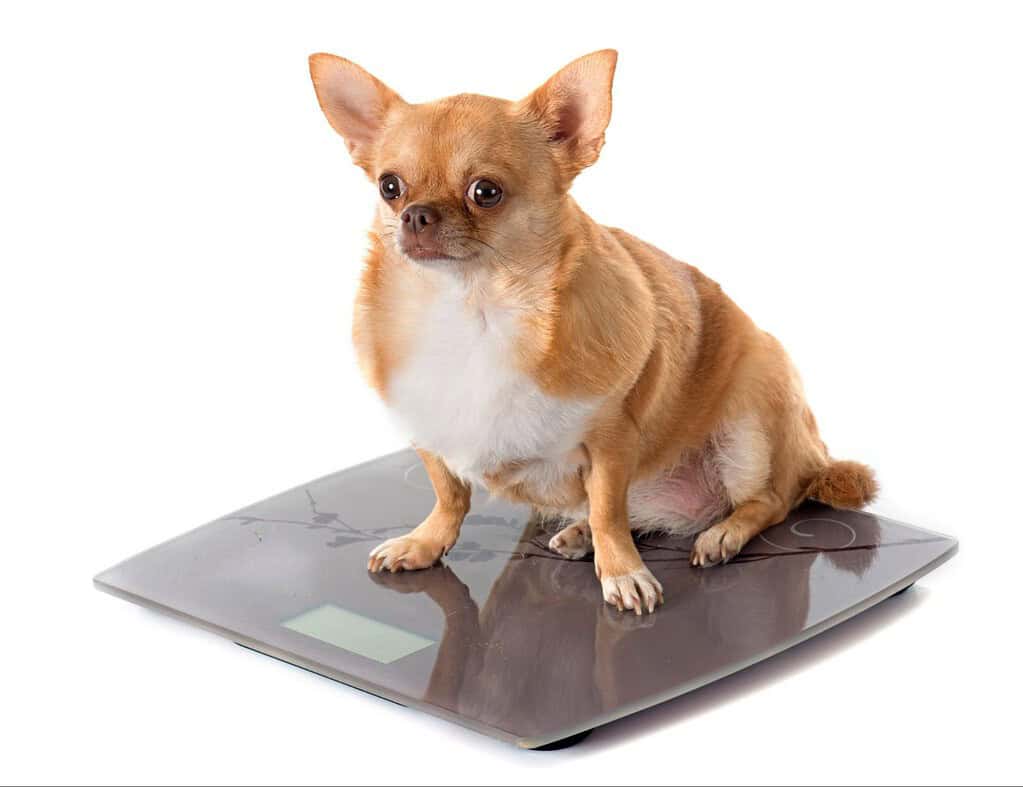
To sum things up, our beloved mac ‘n cheese hides a plethora of potential health risks for our pooches, from peculiar ingredient combos to possible allergic reactions. So, resist those pleading doggie eyes and keep the cheesy goodness to yourself. Remember, your vet’s a wellspring of wisdom when dishing out dog-friendly alternatives. Keep them on speed dial!
Enjoying this read?
We publish this content for free to generate interest in our Premium members' area. By subscribing, you can ask the writer any questions related to pet care and this article, get access to 100+ Premium Pet Care Guides and go Ad-Free with DogFix Premium for $2.99.
Alternatives to Feeding Dogs Mac and Cheese
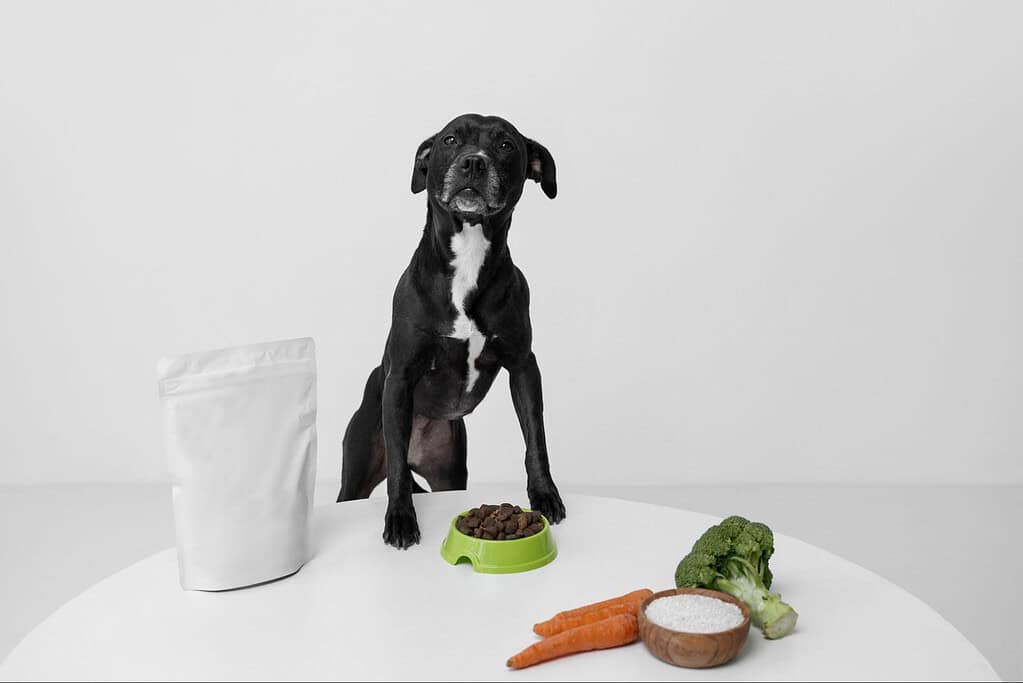
While we’d all love just to split that cheesy bowl of mac ‘n cheese with our dogs, the reality is – it’s not the best dish for our furry friends. Sure, it might make their tails wag, but the after-effects? Not as fun. That’s why it’s time to turn to healthier alternatives. Let’s see what we’ve got cooking.
Veggies and Fruits
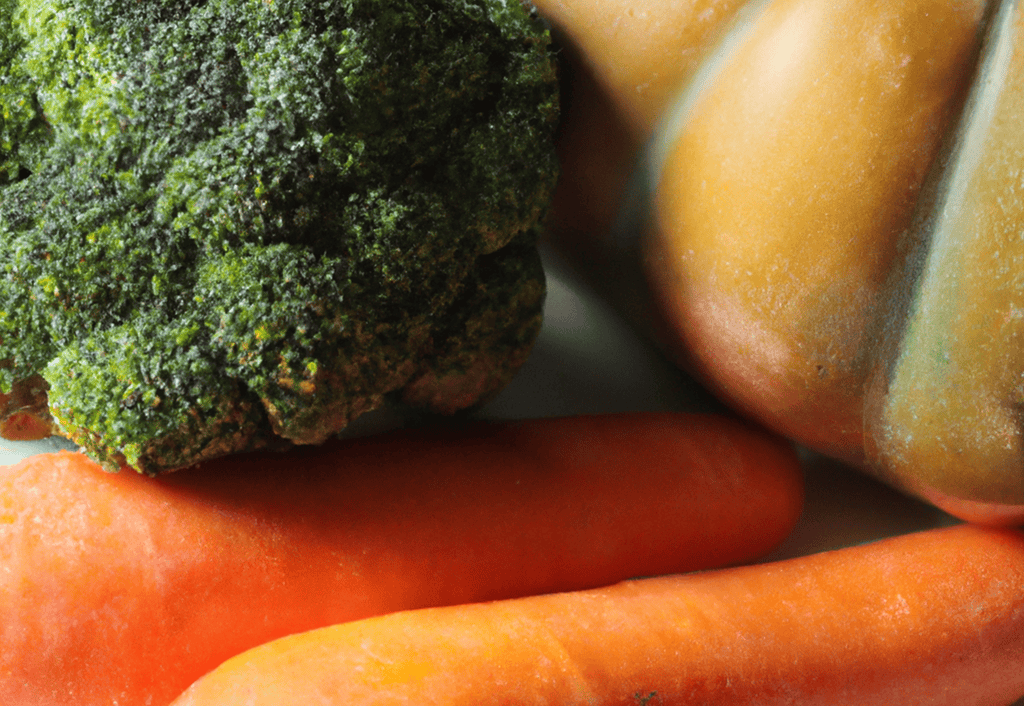
Who said dogs don’t dig greens? You’d be surprised! Veggies like broccoli and carrots can be a huge hit with your pooch. A slice of pumpkin here, a bit of banana there – they all pack a punch of vitamins and nutrients. Plus, they’re light on calories which means no worries about packing on paw pounds.
Fish
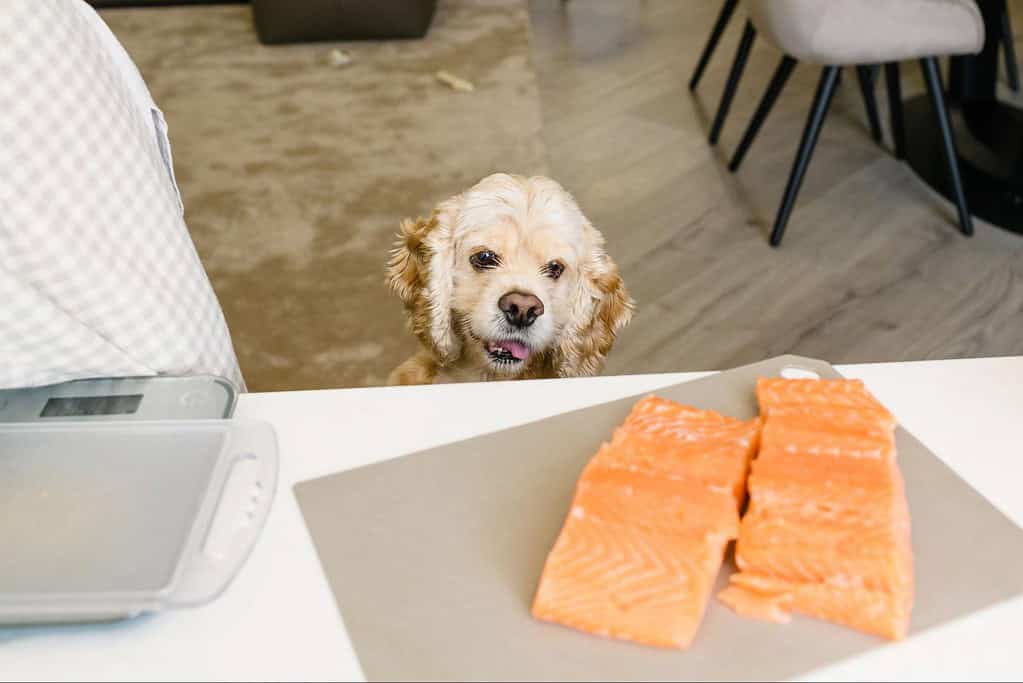
When looking for a protein-packed alternative, why not give fish a go? Salmon, mackerel, and sardines are swimming with goodies – especially those oh-so-important omega-3 fatty acids. They’re great for a shiny coat, strong joints, and overall well-being. Remember, no bones about it – always remove fish bones and cook thoroughly!
Kibble
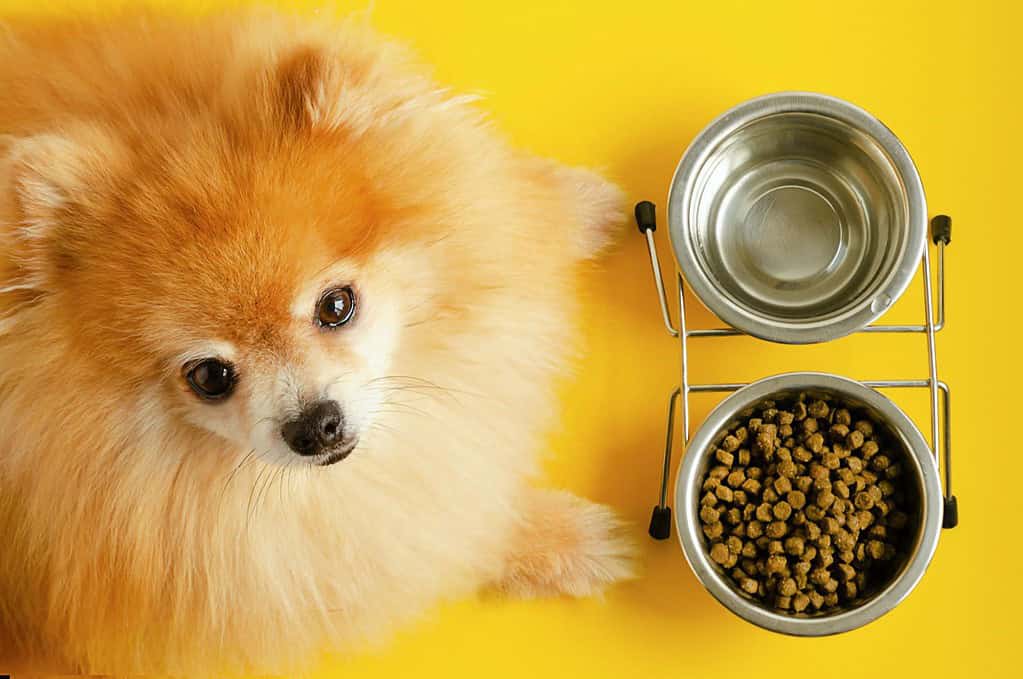
Quality kibble can make a surprising addition to your fur buddy’s feeding frenzy – it’s not dubbed ‘fast food for dogs’ for nothing! With recipes backed by vets and pet nutrition experts, they’re a great option to ensure your pooch is getting what they need and when. You can serve it alongside the fresh stuff for a well-rounded doggie feast.
Cheese
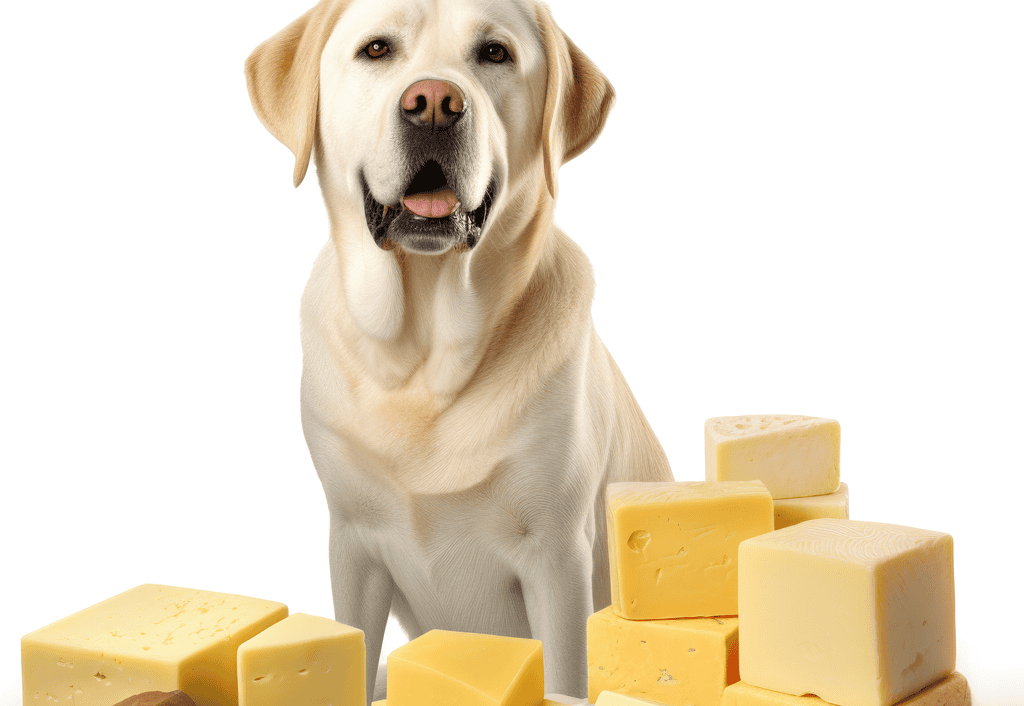
If your dog is a dairy lover and you’re desperate to meet them halfway, consider some carefully chosen cheese. Things like cottage cheese or parmesan are less likely to transform your pooch are less likely to upset your dog’s digestive system compared to heavy, fatty cheeses. Do skip the cream cheese, though, as it’s high in fat and may cause gastrointestinal issues.

Before you transition into ‘Top Chef – Doggie Edition,’ have a chat with your vet. They can provide a personalized menu based on your pet’s unique needs, considering their age, weight, and health status. So, while mac and cheese is off the menu for your fur friend, there are plenty more creative and healthy options in the wings. Ready, set, cook!
Frequently Asked Questions
What Happens if My Dog Eats Mac ‘n’ Cheese?
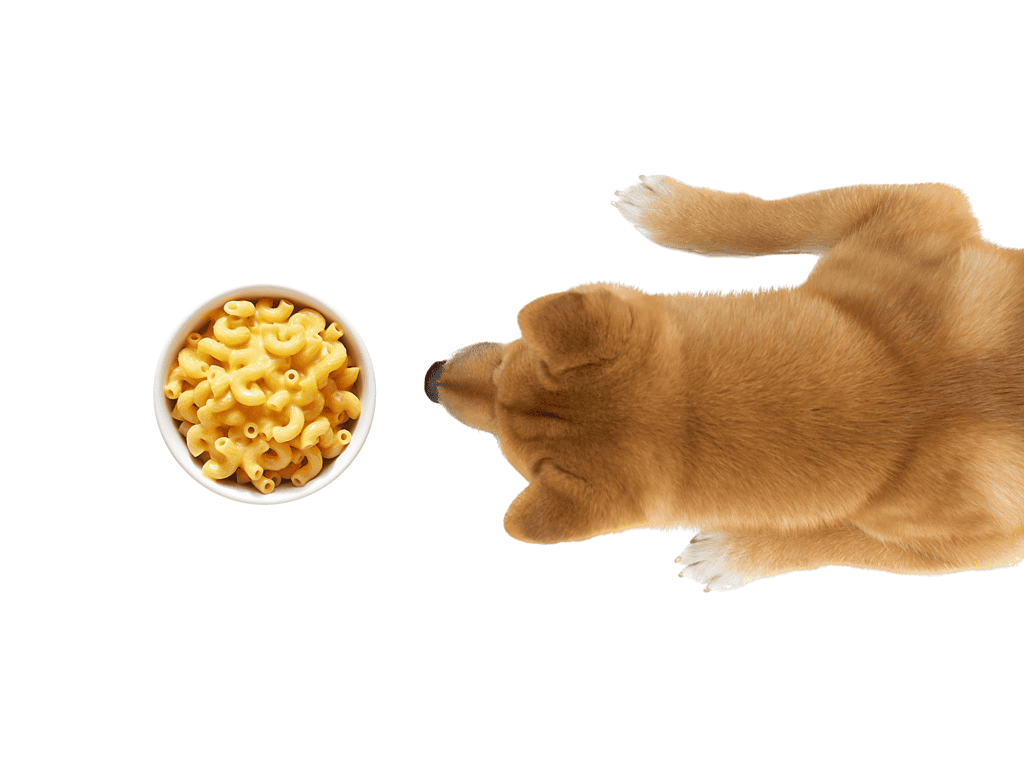
Mac and cheese can be harmful to dogs as it contains dairy and gluten. If your fur buddy sneaks a bite of mac ‘n’ cheese, they might get a tummy ache, diarrhea, or even throw up. Plus, it’s loaded with calories and fat, which could make them put on weight if they eat too much.
Can Dogs Have Cheese?
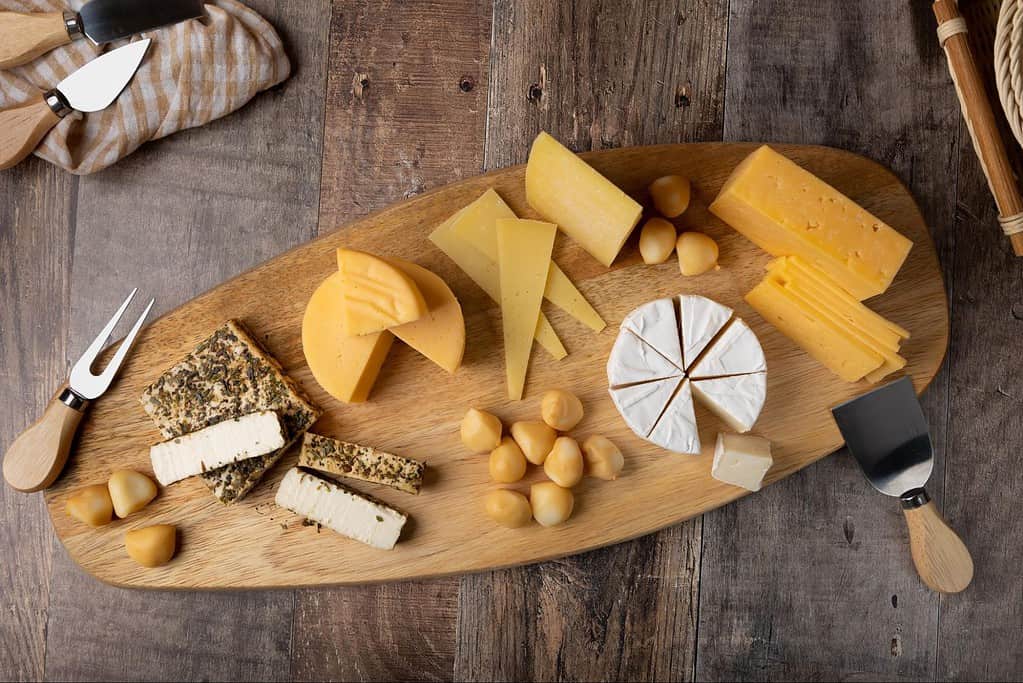
Cheese isn’t totally a no-go for dogs, but it should be a once-in-a-while snack. Some dogs can’t digest lactose well, and it can upset their stomach. Be mindful of the calories too!
What About Just Macaroni?
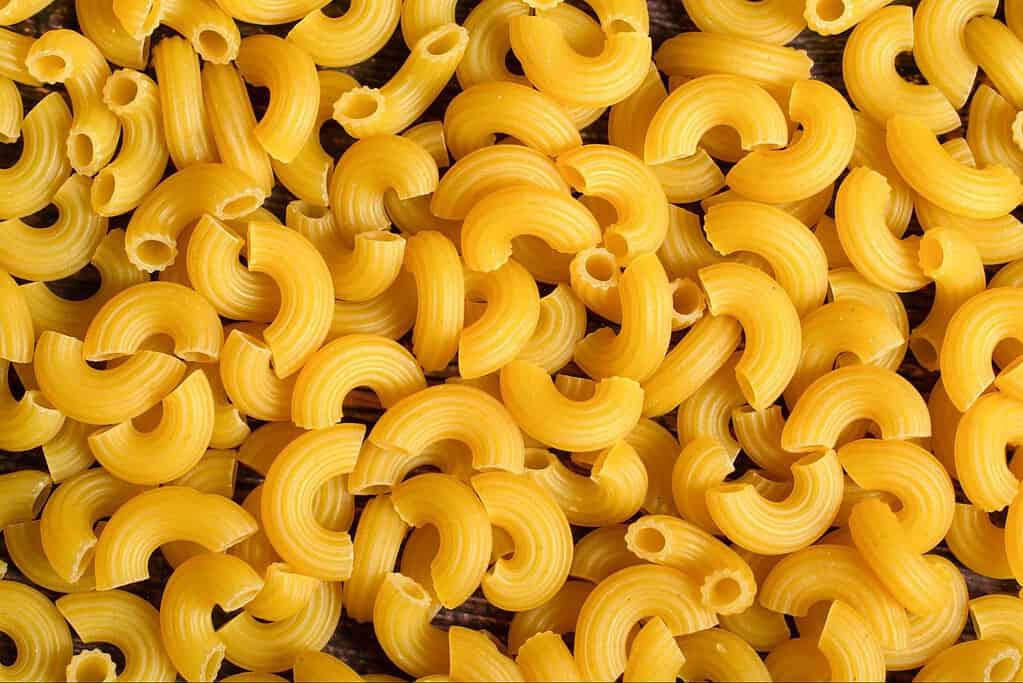
Plain macaroni in small amounts is probably okay for your pooch. But remember, it doesn’t have all the good-for-dogs nutrients and can make your fur pal chubby if they eat too much.
What Could I Feed My Dog Instead of Mac ‘n’ Cheese?
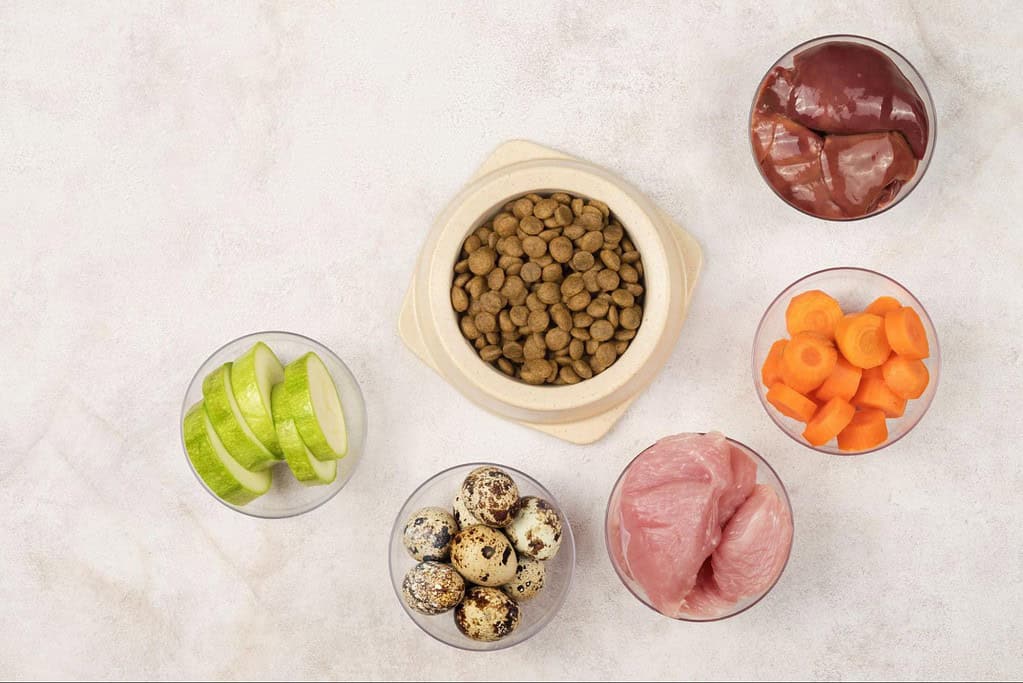
Skip the mac ‘n’ cheese and try a homemade mix of rice, vegetables, and lean meats like chicken or turkey. There are also a bunch of healthy doggie treats in the pet store. Talk to your vet if you’re thinking about a big change to your dog’s diet.
Things To Remember
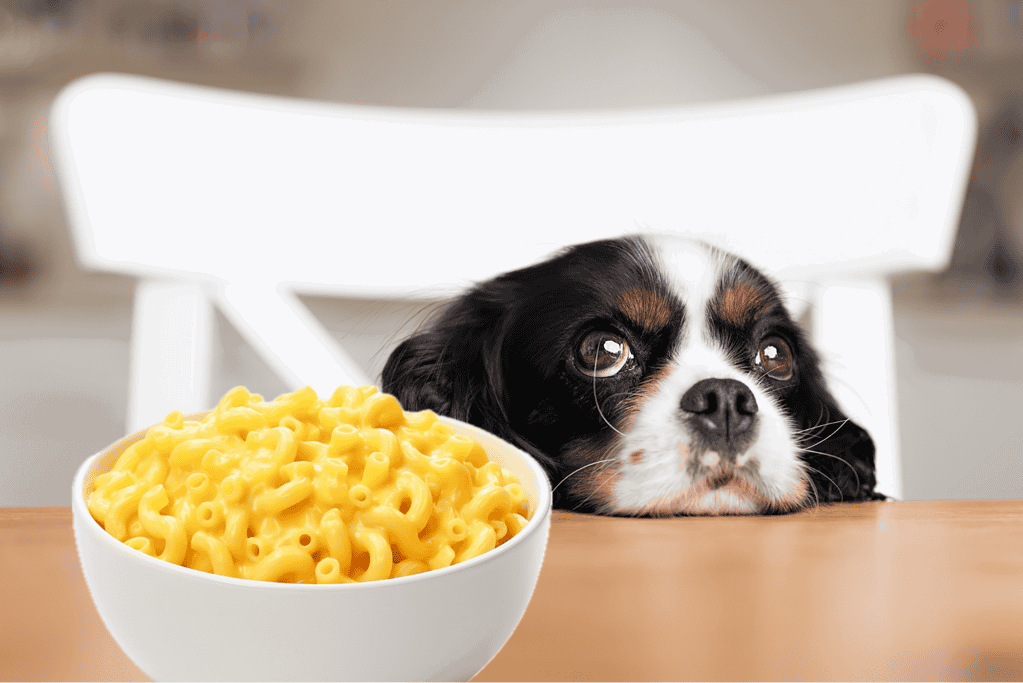
- Mac and cheese can be consumed by dogs, but it’s not ideal due to potential health risks and lack of nutritional value.
- Dairy, gluten, and harmful seasonings in mac and cheese can cause digestive issues and allergic reactions in dogs.
- Choose healthier alternatives to ensure your dog maintains a balanced diet and avoids adverse effects.
